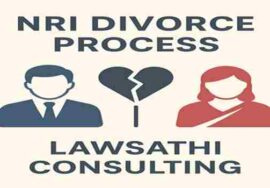Indian Citizenship Process
Navigating Indian citizenship involves understanding eligibility criteria, legal pathways, and documentation requirements under the Citizenship Act, 1955 (and its amendments, including the Citizenship Amendment Act, 2019).
Below are the key services related to Indian Citizenship:
1. How to Acquire Indian Citizenship?
Indian citizenship can be acquired through the following methods:
(A) Citizenship by Birth
A person born in India on or after January 26, 1950, but before July 1, 1987, is an Indian citizen by birth.
A person born in India between July 1, 1987, and December 3, 2004, is an Indian citizen if either parent is an Indian citizen at the time of birth.
If a person born on or after December 3, 2004, is an Indian citizen only if both parents are Indian citizens, or one parent is an Indian citizen and the other is not an illegal migrant.
(B) Citizenship by Descent
A person born outside India on or after January 26, 1950, but before December 10, 1992, is an Indian citizen if their father was an Indian citizen at the time of birth.
A person born outside India on or after December 10, 1992, is an Indian citizen if either parent was an Indian citizen at the time of birth.
The birth must be registered at the Indian consulate within one year.
(C) Citizenship by Registration (Applicable for certain categories of persons)
Eligible individuals include:
Persons of Indian origin who have resided in India for seven years.
Foreigners married to Indian citizens who have lived in India for seven years.
Minor children of Indian citizens.
Persons registered as Overseas Citizen of India (OCI) for five years and residing in India for one year.
(D) Citizenship by Naturalization
A foreign national who has resided in India for 12 years (continuously for the last 12 months and for 11 years in the past 14 years) and meets other qualifications can apply for naturalization.
Must demonstrate good character, adequate knowledge of an Indian language, and intent to reside in India.
(E) Citizenship by Government Grant/ Citizenship by incorporation of territory
Special provisions exist where the Government of India can grant citizenship to persons in special cases (e.g., certain Tibetan refugees, persons from Bangladesh, etc.).
2. Overseas Citizen of India (OCI) & Person of Indian Origin (PIO)
The OCI scheme is for persons of Indian origin who want to live and work in India indefinitely without full citizenship. PIO cards have been merged with OCI cards.
OCI Benefits:
Multiple-entry lifelong visa
No need to register with FRRO for long stays
Can purchase property (except agricultural land)
Can open bank accounts and do business in India
3. Renunciation and Termination of Indian Citizenship
Voluntary Renunciation: An Indian citizen can voluntarily renounce citizenship by applying to the Ministry of Home Affairs.
Automatic Termination: If an Indian citizen voluntarily acquires foreign citizenship, Indian citizenship is automatically terminated.
Deprivation: Citizenship can be revoked if obtained fraudulently or for actions against national security.
4. Indian Citizenship for Foreigners (Citizenship by Naturalization or Registration)
Foreign nationals seeking Indian citizenship must apply through the Ministry of Home Affairs (MHA) under Form XXII, along with documents proving eligibility, residency, and good character.
Documents Required:
Valid passport and visa
Birth certificate
Residence proof in India
Language proficiency certificate (for naturalization)
5. Application Process for Indian Citizenship
Prepare Documents: Birth proof, passport, residency records, marriage certificate (if applicable).
Submit Application – Apply online through the MHA Portal (indiancitizenshiponline.nic.in) or in person at the District Collector’s Office.
Verification & Interview – Authorities review the application, conduct police verification, and may call for an interview.
Approval & Citizenship Certificate – If approved, a citizenship certificate is issued.
6. Legal Assistance for Citizenship Matters
If you need help with:
Applying for OCI, Renunciation, or Registration
Resolving citizenship disputes (NRI, PIO, refugee cases)
Citizenship applications for foreign spouses of Indian citizens
Legal representation in citizenship-related court cases
You may require a legal expert for documentation, verification, and representation before authorities.
CAA Controversy: This applies only to non-Muslim minorities from Afghanistan, Bangladesh, and Pakistan.
National Register of Citizens (NRC): Currently applicable only in Assam; may expand nationally (pending government decision).
Note
Always verify eligibility and consult legal experts for cases involving prior deportation, criminal records, or contested documentation. For OCI or CAA queries, rely on official MHA/embassy updates to avoid misinformation.
Disclaimer: This article is for educational and informational purposes only. It provides a general understanding of legal remedies but does not constitute legal advice. For specific legal guidance, you can just consult the legal matter expert.



